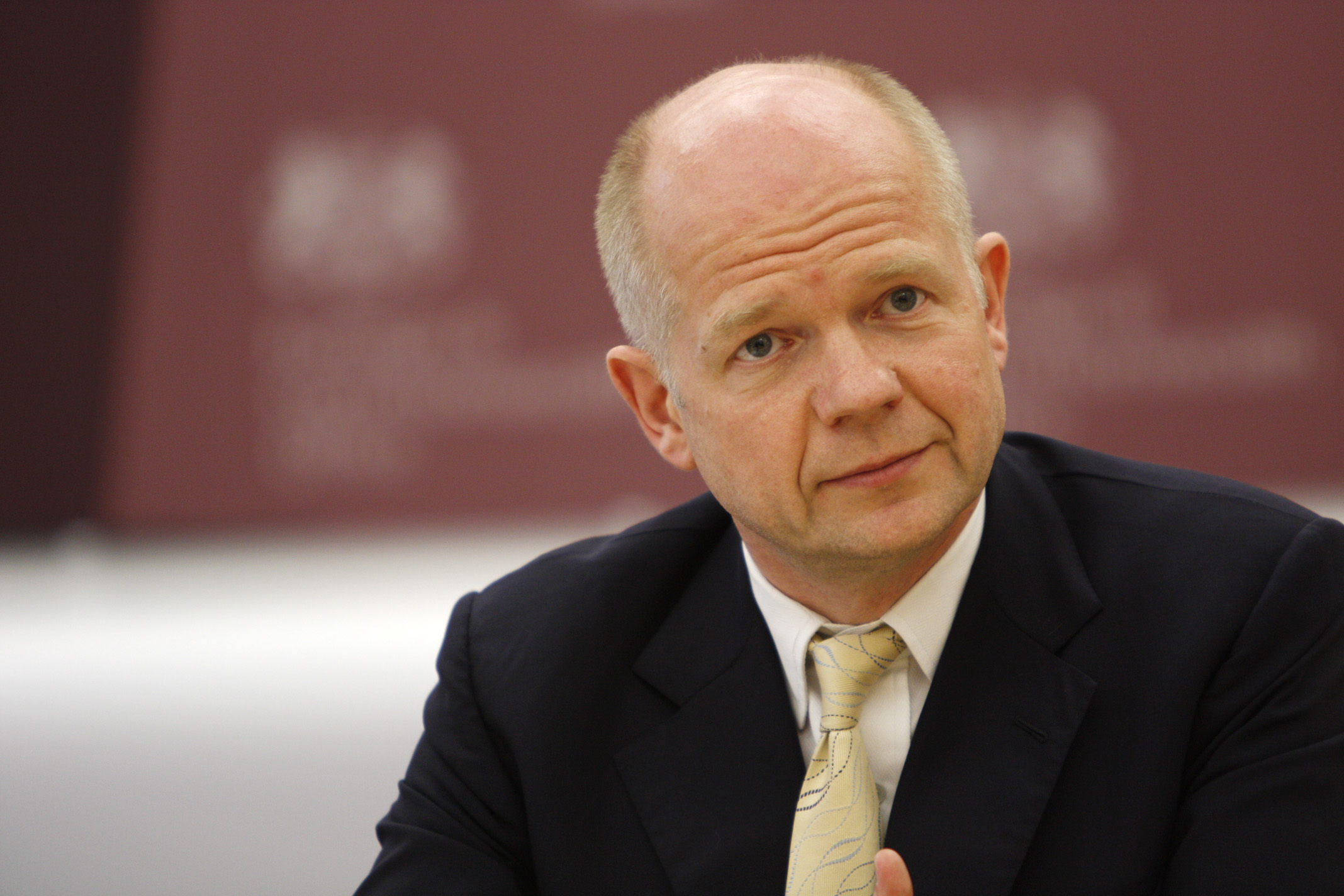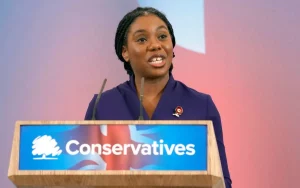PRESSURE POINT – Would Stevie Wonder make a better Chancellor than William Hague?
by Noam Sala Budgen | November 28, 2024

“What is the Chancellor? What do they even do?”
Amid pressing global crises, genocidal wars and an economic recession, the race for the Oxford Chancellorship seems like an elite sideshow. Like many, I initially dismissed the role of Chancellor as little more than a ceremonial title: pomp and circumstance without real power. But the flood of media attention around this race, made me wonder if I had missed something crucial. So, in true journalistic fashion, I ventured out to Cornmarket Street—the heart of Oxford—to ask students why this election actually matters.
This week the results of the Chancellorship election were announced. Lord William Hague, former Foreign Secretary and leader of the Conservative Party, was declared the next chancellor of the University of Oxford.
On the surface, the role of Chancellor is described by the Oxford Alumni website as rooted in “soft power” and still carrying “enormous symbolic power”. The position, established in 1224, nearly witnessed a historic milestone this year, as Lady Elish Angiolini received the second-highest number of votes in the race. Had she won, she would have become the first-ever female Chancellor in its long history. Yet, despite this historic potential, the significance of the election seems largely lost on the student body. As I spoke to students, I was met with confusion and indifference. Many asked, “What is the Chancellor?” or “What do they even do?”. The only acknowledgement of a possible first female Chancellor came from one student who knew, vaguely, that “the Somerville woman” was running. Oxford’s claim that the role still holds “enormous symbolic power” seemed, to some, more about attracting funding than making a difference—one student summed it up simply, “they just attract money”.
Beyond apathy, I heard a few hot takes—some even on the more extreme side. One student bluntly stated, “They do bugger all for the university, it’s just a face, but I’d rather a British face than anyone else’s”. It was one of those moments where the Oxford stereotype seemed to ring true… elitist whispers, racist answers. But beyond the racists, there were serious concerns about representation. Some students expressed a desire for a Chancellor who aligns with their values. One raised concerns about the lack of political response from the previous Chancellor and the university on major issues, highlighting the stark contrast in reactions to the invasion of Ukraine and the genocide in Gaza. “It matters if a Tory represents me”, one student said, pointing to the symbolic weight such figures carry in global political discourse.
When asked if former politicians should take on the role of Chancellor, many students supported the idea, citing the diplomatic experience politicians bring. One student noted, “It can’t go wrong with either Hague or Mandelson… brilliant professionals”. But the question arose: should a university like Oxford risk polarising its student body by appointing figures like Peter Mandelson, who has been described as a key influence in Labour Prime Minister Keir Starmer’s network? Likewise, William Hague represents Mandelson’s conservative counterpart, carrying his own strong political affiliations as a prominent figure in the Conservative Party—especially given controversial remarks, such as his claim that Britain was becoming a “foreign land”. Such candidates might alienate students who hold opposing political views, creating divisions within the community.
I spoke to an Oxford local, who voiced concerns about the political figures representing the university. He emphasised that Oxford’s global brand impacts not only students but the townspeople as well. When I mentioned Mandelson’s potential candidacy, he responded, “The devil incarnate, a staunch remainer”. I’m sure he must have been pleased with the result, knowing that Hague’s win had firmly planted his flag on native soil… Despite our differing political stances, his perspective rang true. Students and locals alike are impacted by how Oxford is perceived on the global stage, yet neither group had a vote in the Chancellorship election.
I asked students if they should be allowed to vote; the answer was a resounding yes. As one student put it, “Students are actually concerned by it, so why not?”. However, because we are excluded from the voting process, there’s a clear sense of disconnect. One student told me, “My dad knows more about it than I do”, and a skeptical third year speculated, “Maybe they don’t want us to know?”. The lack of transparency surrounding the election frustrated many, with one student noting that if the vote were extended to students, there might be a lack of diversity in political thought, leading to “an unbalanced voting population.”
A particularly disillusioned student summed up the sentiment of many: “As someone who hasn’t bought into being part of the institution, unless you’re really involved and care, you end up not knowing anything. When you hear about the inner workings of the uni, it’s shocking and hard to digest”.
Throughout my conversations, one thing became clear: this race for Chancellorship serves as a reminder that Oxford is more than just a place of study: it is a global brand. The Chancellor, for better or for worse, embodies that brand which carries weight far beyond the university’s walls. One student, when asked who they’d choose for Chancellor exclaimed “Stevie Wonder” after being “snubbed” for Glastonbury’s legend slot. The Chancellor Elect, William Hague, may not have the same enduring iconic appeal. Considering this, it’s perhaps not surprising that most students remain unaware of the role or the election. After all, if the University’s own students are left out of the process and the conversation, how can they be expected to care? ∎
Words by Noam Sala-Budgen. Image Courtesy of Foreign, Commonwealth & Development Office via Flickr.




